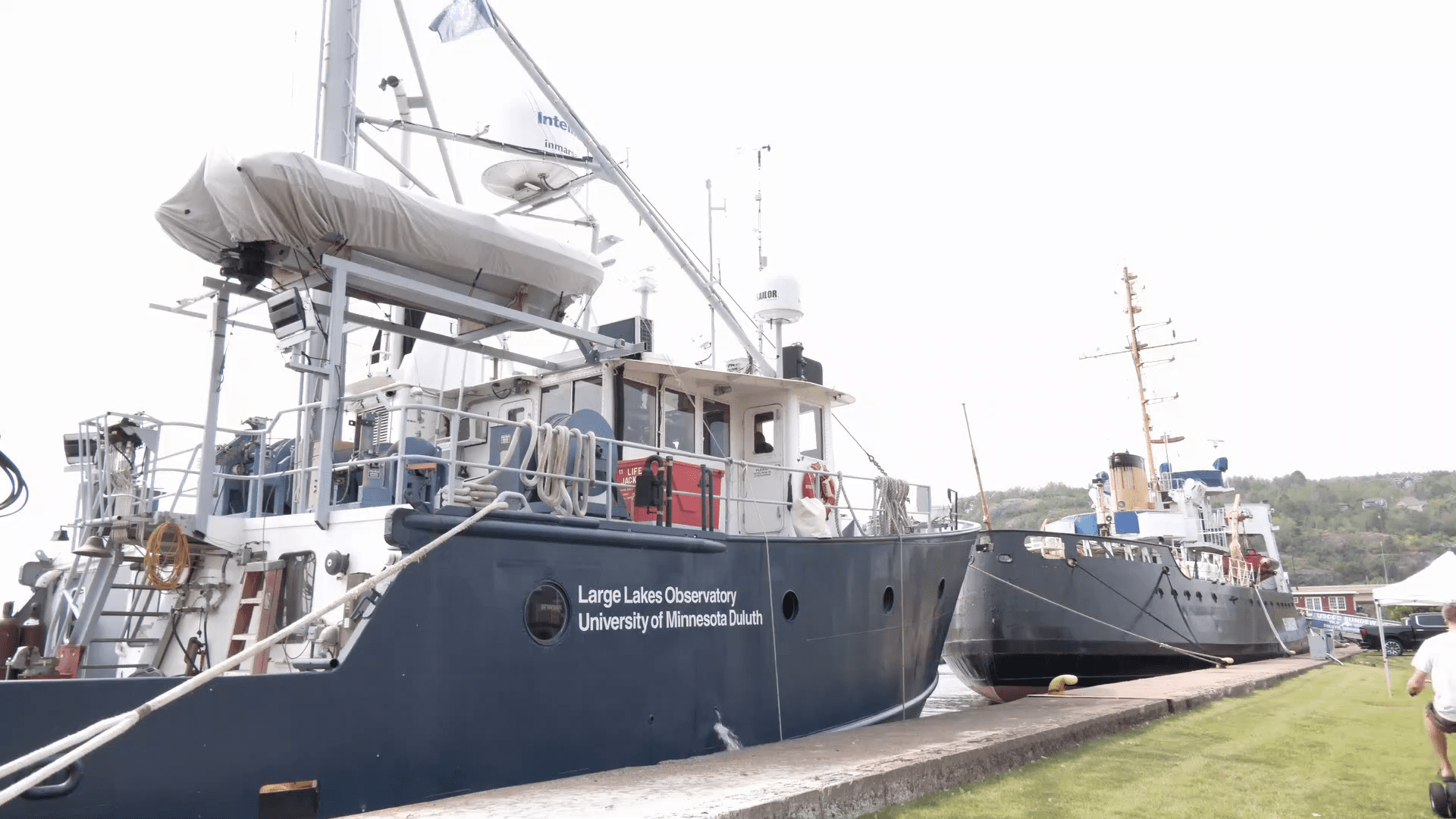UMD-LLO hosts Freshwater Discovery Day

Those attending Freshwater Discovery Day were able to explore the Blue Heron, Sundew, and the Vista Queen (WDIO).
University of Minnesota-Duluth’s Large Lakes Observatory (LLO) is the only scientific institute in the world dedicated to studying the world’s large lakes. The institute held a “Freshwater Discovery Day” on Wednesday to focus on outreach and engagement.
“We want to connect better with the community around us, and the research that we do on freshwater, a globally significant resource, cutting-edge science that’s done here in Duluth, and physics, and chemistry, and biology, and geology,” said Large Lakes Observatory Director Robert Sterner. “We want to tell that story to the public at large, and doing an event like this just allows us to be efficient with that, but also just broaden the reach, because one large event permeates much better than a bunch of small ones.”
This event was the first of its kind. Around 140 people attended, and around 30 scientists and engineers volunteered. The day began with a morning interpretive cruise with attendees going on the Blue Heron research vessel, the Vista Queen, or the Sundew, a former Coast Guard icebreaker that is now privately owned.
“They did similar things in the sense of bringing science to the public, and interacting with people, and showing things that we do on boats, but each activity was different because the boats were equipped differently,” said Sterner.
After lunch, attendees were able to attend research presentations, view documentary films that LLO has been a part of, and interact with scientists at tabling exhibits.
“We sort of knew when we started planning this that it could be a great event, and it’s definitely demonstrated itself to be that. We hear positive things from all walks of life, from people who already have a deep knowledge about what we do, and from people who are just learning, and it’s been terrific, really terrific,” said Sterner.
In addition to ongoing research projects, LLO has aspirations to relocate from the oldest building on the UMD campus. More information about LLO’s projects and funding needs can be found on the institute’s website.